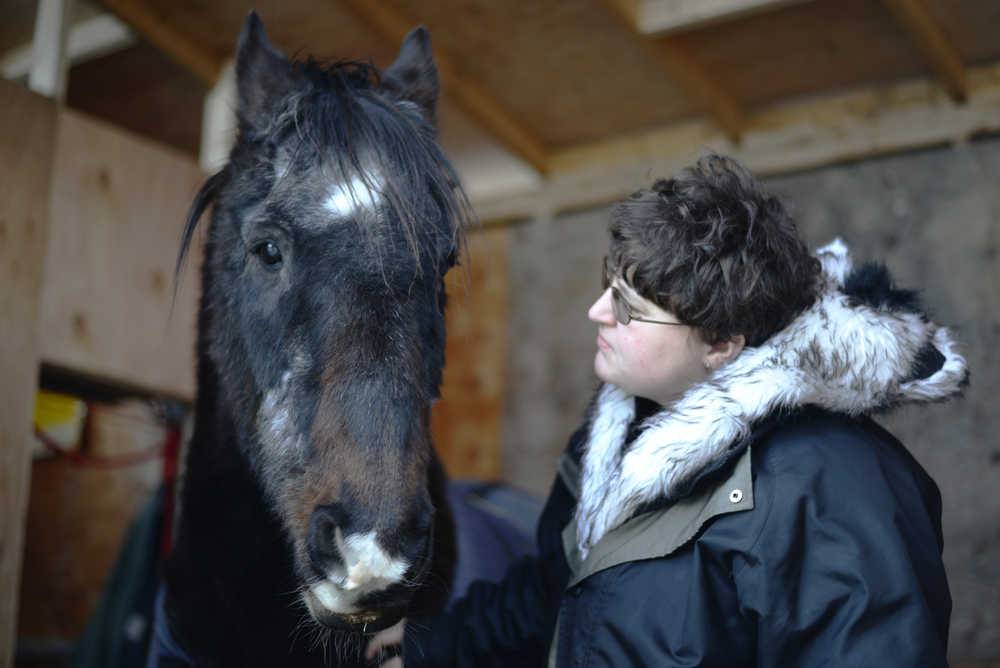Kenai resident Kim Garrettson will be allowed to keep Major, a horse that serves as an emotional support animal for her autistic daughter, Cristal Barton, on her Kenai property in exception to city code which prohibits livestock on lots less than 40,000 square feet.
After her August 2015 application to keep Major was denied by the Kenai Planning and Zoning Commission on Oct. 24, Garrettson appealed to the Kenai City Council for reconsideration of the rejection. The council announced on Thursday that it had overturned the commission’s decision and granted Garrettson a permit to keep the horse.
“I was expecting more of a fight,” Garrettson said. “But I’m very, very ecstatic that we don’t have to fight anymore.”
When the seven planning and zoning commissioners voted 5-2 against the permit, opposing members cited the size of Garrettson’s property — 10,000 square feet, a quarter of the required area — as well as the possibility of reduced property values in the neighborhood because of smells and landscape damage that could be caused by a horse.
The members of the Kenai City Council, who in deciding administrative appeals act as a separate body called the Board of Adjustment, gave Garrettson the permit on the basis of the federal Fair Housing Act, which requires authorities to give reasonable accommodations for any aid, including emotional support animals, that allow disabled people to experience their residence in the same way that a non-disabled person would.
After hearing testimony from Garrettson and her lawyer, Anne Applegate of the nonprofit Disability Law Center of Alaska, the council ruled in closed sessions that “the evidence… overwhelmingly demonstrates that there does exist some nexus between Ms. Barton’s handicap and her ability to function and engage in life activities when she has access to her horse, Major.”
Two council members, Kenai Mayor Pat Porter and Terry Bookey, did not participate in the board of adjustment deliberations — Bookey due to absence, and Porter due to a conflict of interest.
In April 2015, Porter had made two complaints about the horse to the Kenai Animal Control Department.
Barton said she had received a large amount of support from other Kenai residents during the appeal, for which she was grateful.
Garrettson said if the appeal hadn’t overturned the planning and zoning decision, she would have brought a lawsuit based on the Fair Housing Act against Kenai in the Alaska Superior Court.
Barton said that although she was relieved by the appeal’s result, she hadn’t expected it to turn out one way or another.
“I just let it happen, and see what will happen,” Barton said. “I don’t assume because if you look forward to tomorrow, it might change differently. You just have to wait until it happens.”

